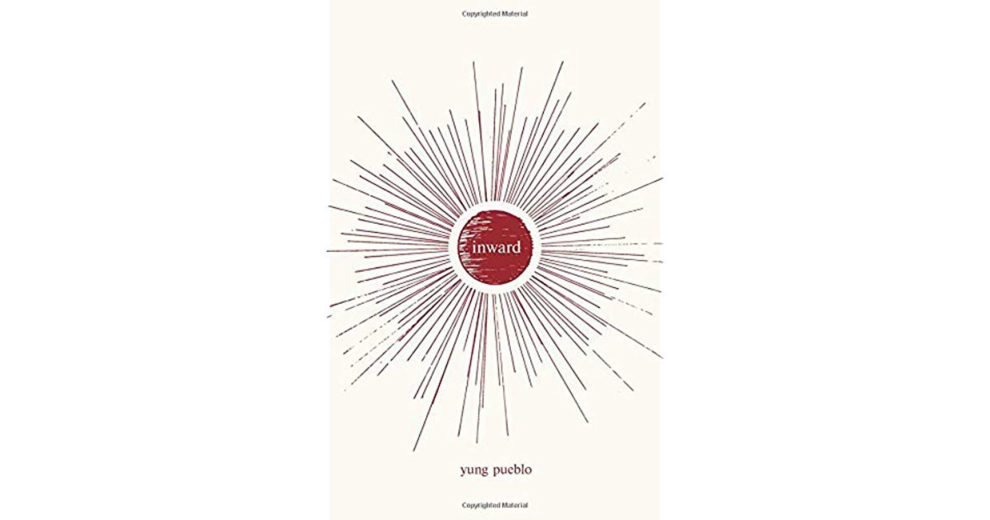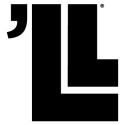
If Paolo Coehlo had written The Alchemist in the age of social media, he would have been Diego Perez aka Yung Pueblo. Perez is an Ecuadorian-American author, who is an Instagram star and real talk guru. To date over 364,000 people follow the “meditator, writer, speaker” and his musings about the human condition and the meaning of freedom.
View his Instagram profile or visit his website for a dose of poetry, life lessons, sage advice and common sense. Each form of prose is simple but powerful. How it all looks even makes a statement: a few lines of text on a white background.
The messages repeat, like a mantra, the same lesson in different ways: personal healing and growth are the first steps to see the world change. In fact the inside cover of his book, Inward, spells it out:
“two of the great lessons humanity will learn in the 21st century will be:
to harm one another is to harm oneself
when you heal yourself, you heal the world”
From the book Inward
Perez self-published Inward, in November 2017 and a new version was released in September 2018 by his new publishing house. It went from only being sold online to being available at bookstores around the world in English and Spanish. Perez is following in the path of “new age” or Latino authors like Coelho and Don Miguel Ruiz whose plain-spoken stories and allegories are lessons for life. Thanks to social media, he’s built an audience and support for his work faster than he might have otherwise.
Although he’s busy speaking (he has spoken in London and SXSW this year), writing his new book (it’s set to debut in 2020) and meditating (he gets in two hours a day!) he chatted with us about the magical realism of meditation, unlearning machismo, and the profound task of healing.
‘LL: How would you describe what you do?
YP: Well I like to write at the intersection of psychology, philosophy and spirituality, really focusing on exploring the mind, emotions and how to live a better life through poetry and prose and quotes. A lot of this started once I got a better sense of the mind and reality through Vipassana meditation (a technique developed by the Buddha 2,600 years ago. Vipassana means seeing things as they are.) It has helped me a lot in regard to my own healing and liberation.
‘LL: What were you trying to heal?
YP: Throughout my life I always felt a lot of sadness and anxiety that was really affecting my actions. When I started meditating these heavy emotions started decreasing and it felt like there was more space in my mind for me to make better decisions.
‘LL: When did you start meditating? And how did it go personal practice to writing and sharing it with the world?
YP: I started meditating back in July of 2012. I started writing because I was surprised that I was actually feeling better, that real healing was possible. I knew I had a lot left to learn but thought it was worthwhile to start sharing via poetry/prose.
LL: Why did you choose to share all this on social media?
YP: I was really inspired by r.m. drake and Rupi Kapur. I saw what they were doing on Instagram and was amazed at how putting your words with an image were a good way to reach people. I knew I wanted to get the message out there and at the time Instagram felt like a good fit.
‘LL: When did you decide to write your book?
YP: The plan was always first to write a book. But I knew that I needed to develop my skills as a writer. I also felt like book publishers would not have been interested in the type of things I liked writing about at the time. I thought if people like what I am writing then institutions will like it too. And that is how it went. A week before I self published Inward the publishing company I am with now reached out about signing me. I went ahead with self-publishing and then I released a revised version of Inward in September 2018.
‘LL: Before you became a writer you were an activist. How did that influence your writing?
YP: I grew up in Boston and at 15 years old , I was part of this organization Boston Youth Organizing Project where [students] would train each other in organizing and then we would plan campaigns to improve our schools and the city of Boston. I learned a lot about how powerful people could be when they come together and realize that they are their own masters. Alot of our collective problems can be improved by people getting to know/heal/love themselves. I took a break from organizing when I was 26 and then turned my focus to cultivating my writing skills. Now I am a full time writer and speaker.
‘LL: How can Latino men heal themselves or change their mentalities that have been affected by ideas like machisimo?
YP: Machismo is an antiquated and harmful way of life for Latino men. Overcoming this internalized patriarchy is an important way to decrease the harm we cause ourselves and others. I think meditating in particular helps use see that a lot of our societal conditioning is stopping us from living our best lives. When we let go of this heavy conditioning we can think more clearly, act more lovingly, be more in touch with our emotions and be much more creative and better at problem solving. When I first started writing it was mostly women who were engaging with what I was putting online. It is encouraging seeing more and more people who identify as men who are coming to my events and reading my book.
‘LL: What are some of the most harmful aspects of machismo?
YP: I think machismo, in particular, becomes a wall that stops you from getting to know yourself; it doesn’t let you get in contact with your emotions to process them in a healthy way. When we are incapable of knowing ourselves it becomes easier for us to be emotionally unavailable. When we are far away from ourselves like that we end up finding destructive behaviors as an outlet.
‘LL: How did you overcome your own machismo?
YP: Through meditating I saw how this conditioning had quietly taken control of my mind. Then I started to do the opposite of what it would tell me. Mainly I would examine the gender roles I was reproducing at home and started taking a more active role in all of the cooking and cleaning. My wife and I make decisions cooperatively and equally so that we both feel in our power. And personally I work on cultivating myself awareness so that I am in contact with my emotions instead of running away from them.
‘LL: How have your Ecuadorian roots impacted how you approach your work?
YP: I write under the name Yung Pueblo not just because it reminds me of how all of humanity is in the midst of growing up, but because the word “pueblo” reminds me of Guayaquil. Seeing the name constantly brings me back to my roots and inspires me to keep going. I keep Ecuador close to my heart because it is my first home. One of my dreams when I started writing was to have Inward available in Spanish and throughout Latin America so that my people could access to it. In March that dream came true when Hacia Dentro was released.
